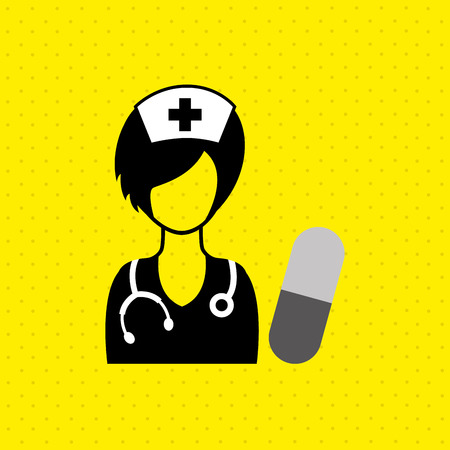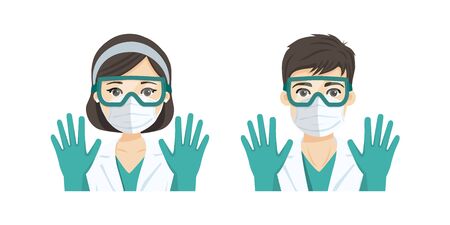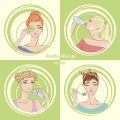Introduction to Acne Trends in the UK
Acne is a common skin concern that affects people of all ages across the United Kingdom, from teenagers navigating secondary school to adults balancing busy work schedules. Recent studies have shown that acne prevalence in the UK remains high, with one in five adults reporting ongoing breakouts well beyond their teenage years. This persistent issue highlights the importance of understanding not just the biological causes of acne, but also how daily habits contribute to our skin’s wellbeing. The British lifestyle—characterised by unpredictable weather, stress-filled routines, and unique dietary patterns—can play a significant role in both triggering and healing acne. By exploring how these local factors interact with our skin health, we gain valuable insights into more effective ways to manage and recover from acne, tailored specifically for life in the UK.
Traditional British Diet and Its Effects on Skin
When exploring how lifestyle and diet in the UK influence acne and skin recovery, it’s essential to examine the traditional British diet. Many classic British meals are built around fried foods, processed convenience items, and significant dairy consumption. While these foods are comforting and woven into the fabric of daily life, they may not always be kind to your skin.
The Role of Fried Foods and Processed Meals
Frequent indulgence in fried dishes—think fish and chips or a full English breakfast—introduces excess saturated fats and oils that can increase inflammation in the body. Processed meals, which are often high in salt, sugars, and preservatives, may disrupt hormone balance and trigger acne flare-ups. These ingredients can also hinder the skin’s natural ability to heal, prolonging recovery from existing blemishes.
Common Components of the Traditional British Diet
| Food Group | Examples | Potential Impact on Skin |
|---|---|---|
| Fried Foods | Fish & Chips, Fry-Ups | Increases inflammation, clogs pores |
| Processed Meals | Ready-meals, Sausages, Pies | High in salt/sugar; may trigger breakouts |
| Dairy Products | Milk, Cheese, Cream Teas | Affects hormones; linked to persistent acne in some people |
Dairy’s Double-Edged Sword
Dairy is another staple of British cuisine—whether in milky tea or creamy desserts. However, research suggests that regular dairy intake can stimulate certain hormones that worsen acne for those who are sensitive. Not everyone will react the same way, but if you struggle with stubborn breakouts, considering your dairy intake might be a gentle first step toward clearer skin.
The good news is that awareness is empowering. By gently adjusting classic eating habits—such as swapping out fried options for grilled alternatives or reducing reliance on processed foods—you can support both your overall health and your journey toward better skin.

3. Modern Lifestyle Factors: Stress, Sleep, and Urban Living
Life in the UK’s bustling cities is often fast-paced and demanding, which can have a significant impact on skin health and acne recovery. The pressures of work or academic life—especially in cosmopolitan hubs like London, Manchester, or Edinburgh—often lead to heightened stress levels. Elevated stress hormones such as cortisol can trigger inflammation and excess oil production, both of which are linked to breakouts. Beyond stress, many people in the UK struggle with irregular sleep patterns due to shift work, late-night socialising, or digital distractions. Poor sleep quality undermines the skin’s natural repair processes, making it harder for blemishes to heal and potentially worsening existing acne.
Urban living also presents unique environmental challenges. Air pollution from traffic and industry is a concern in many UK cities; tiny particles can settle on the skin, clogging pores and contributing to irritation or dullness. Moreover, time spent indoors—especially during the long, dark winter months—can limit exposure to natural light, affecting vitamin D levels and overall wellbeing. While these lifestyle factors are common across urban centres worldwide, the specific rhythms of British city life make them particularly relevant for those managing acne or seeking smoother skin recovery.
The good news is that recognising these influences empowers you to make positive changes. Prioritising regular sleep routines, finding healthy outlets for stress (such as walking in local parks or practising mindfulness), and paying attention to daily cleansing rituals can all support your skin’s resilience against the pressures of modern UK living.
4. Alcohol and Caffeine Consumption
When considering how lifestyle and diet in the UK impact acne and skin recovery, it’s essential to take a closer look at the nation’s beloved beverages—tea, coffee, and alcohol. These drinks are part of daily life for many Britons, but their influence on inflammation, hydration, and ultimately skin clarity is often overlooked.
The British Beverage Culture
From the comforting ritual of afternoon tea to the social pint at the local pub, these beverages are woven into the fabric of UK culture. But while they offer enjoyment and tradition, they may also play a role in exacerbating or alleviating acne-related concerns.
Understanding Their Effects
| Beverage | Potential Skin Impact | Influence on Hydration & Inflammation |
|---|---|---|
| Tea (especially black tea) | Mild stimulant; some antioxidants may benefit skin | May provide hydration if unsweetened; tannins can sometimes irritate sensitive skin |
| Coffee | High caffeine content may increase stress hormones, potentially triggering breakouts in sensitive individuals | Can have a mild diuretic effect, possibly impacting hydration if consumed in excess |
| Alcohol (beer, wine, spirits) | Can cause flushing, increased oil production, and dehydration; may worsen existing skin conditions | Strong dehydrating effect; may increase inflammation and delay skin recovery |
What Does This Mean for Your Skin?
Caffeine found in both tea and coffee can stimulate your nervous system and elevate cortisol levels—the very hormone that’s often linked to acne flare-ups. Excessive consumption might lead to dehydration, making your skin appear duller and slowing its natural healing processes. Alcohol is even more notorious for depleting your body’s water stores, which not only dries out your skin but can also increase inflammation and oiliness.
If you’re striving for clearer skin, consider moderating your intake of these popular drinks. You don’t need to give up your morning cuppa or occasional glass of wine entirely—simply aim for balance. Drink plenty of water alongside caffeinated or alcoholic beverages to support optimal hydration. Listen to your body: if you notice certain drinks seem to trigger breakouts or redness, it could be worth experimenting with alternatives like herbal teas or simply cutting back.
5. Emerging Health Trends and Their Impact
Over the past few years, the UK has witnessed a surge in health-conscious movements that are not only reshaping lifestyles but also having a significant influence on skin health—especially when it comes to acne and recovery. Let’s explore how these recent trends may be quietly working in your favour.
The Rise of Plant-Based Diets
One of the most notable shifts is the growing popularity of plant-based diets across Britain. Whether it’s due to environmental concerns, animal welfare, or simply a quest for better health, more people are choosing to reduce their intake of dairy and highly processed foods. This change often means fewer inflammatory triggers commonly linked with acne breakouts. By embracing a diet rich in whole grains, legumes, fresh vegetables, and fruits—all staples found in British supermarkets—many individuals report clearer, more resilient skin. This approach can be especially beneficial for those who have struggled with traditional Western diets high in sugar and saturated fats.
Fitness Culture: More Than Just Exercise
The fitness boom sweeping through UK cities and towns is another positive trend. From early morning runs along the Thames to bustling group classes at local leisure centres, an active lifestyle is now part of everyday conversation. Regular physical activity not only improves overall wellbeing but also helps regulate hormones and reduce stress levels—two key factors that influence acne. Sweating it out through exercise supports healthy circulation, which aids in delivering nutrients to skin cells and flushing away toxins that could otherwise aggravate breakouts.
Mindfulness and Holistic Wellbeing
Alongside nutrition and exercise, there’s been an increased focus on mental health and self-care within British culture. Practices such as yoga, meditation, and mindfulness have gained ground as essential elements of a balanced lifestyle. These practices encourage self-awareness and help manage stress—a well-known contributor to persistent acne. By taking time for yourself, you’re giving your skin a better chance to heal and recover from within.
Together, these emerging trends reflect a positive shift towards more conscious living in the UK. While no single habit guarantees perfect skin, adopting a combination of plant-based eating, regular exercise, and mindful routines can empower you to support your skin’s natural recovery process—one confident step at a time.
6. Public Attitudes and Access to Skincare in the UK
In the UK, public attitudes towards skincare are shaped by a blend of tradition, practicality, and increasing awareness of self-care. While some embrace comprehensive skincare routines, many still lean towards a minimalist approach, often influenced by busy lifestyles and the classic British “stiff upper lip” mentality. This pragmatic attitude means that acne is sometimes seen as a phase to endure rather than actively treat, which can delay effective management and recovery.
The National Health Service (NHS) plays a pivotal role in shaping how people address skin concerns like acne. Although NHS offers access to GPs and dermatologists, wait times for specialist appointments can be lengthy, leading many individuals to seek advice from pharmacists or rely on over-the-counter treatments. The accessibility of pharmacy consultations is a uniquely British advantage—community pharmacists are approachable and knowledgeable, offering guidance on widely available products such as benzoyl peroxide and salicylic acid-based creams.
However, over-the-counter options can be hit-or-miss for persistent or severe acne, sometimes resulting in frustration or inconsistent results. There’s also a growing trend towards natural remedies and cruelty-free products, reflecting the UK’s environmentally conscious mindset. Social media influencers based in the UK have played an important role in promoting positive discussions around skin health and reducing the stigma associated with acne.
Ultimately, successful acne management in the UK relies on navigating these public attitudes—balancing patience with proactive care—and making use of both NHS resources and reliable high-street solutions. By fostering greater openness about skin concerns and encouraging early intervention, the UK can further support individuals on their journey to clearer, healthier skin.
7. Practical Advice for Healthy Skin in the UK Context
Taking charge of your skin health in the UK means embracing habits and choices that work with the local environment, culture, and available resources. Here are some actionable tips to help you support clearer, healthier skin every day:
Embrace a Balanced British Diet
While it’s easy to reach for comfort foods—think chips, chocolate bars, or takeaway curries—try to balance your plate with fresh vegetables, lean proteins like salmon or chicken, and whole grains such as brown bread or oats. The traditional “five a day” rule is still one of the best ways to ensure you’re getting enough vitamins and antioxidants to help your skin recover from breakouts.
Stay Hydrated Despite the Weather
The UK’s cool climate can make you forget about hydration, but your skin still needs plenty of water. Aim for at least six to eight glasses daily. Herbal teas, so popular across Britain, are a great hydrating alternative if plain water feels dull.
Mind Your Dairy Intake
Dairy is a staple in many British diets—think milky tea or cheese sandwiches—but some people find that reducing dairy can help with acne. Try switching to oat or almond milk in your tea or coffee and experiment with dairy-free cheese options.
Watch Out for High-Glycaemic Foods
Staples like white bread, crisps, and sugary breakfast cereals are common in British households but can spike blood sugar levels and worsen acne. Opt for porridge oats, wholemeal toast, or unsweetened granola instead.
Pace Your Stress Levels
The UK lifestyle can be fast-paced and stressful. Practice mindfulness through simple daily activities: a brisk walk along the canal, reading in your local park, or taking five minutes for deep breathing while enjoying a cuppa. Lowering stress helps keep hormonal acne in check.
Protect Your Skin from the Elements
The ever-changing UK weather—from biting winds to damp drizzle—can impact your skin’s recovery. Use a gentle moisturiser suitable for sensitive skin and don’t skip SPF even on cloudy days; UV rays can still affect healing and pigmentation.
Choose Local Skincare Wisely
Support your routine with products designed for sensitive or acne-prone skin that are widely available in UK chemists. Look out for brands that avoid harsh chemicals and focus on gentle, fragrance-free formulas.
Your Path to Confidence Starts Here
No matter where you begin, making small changes tailored to British life can yield big improvements in your skin—and your self-confidence. Remember: progress takes time, so be patient and kind to yourself on this journey toward clearer, healthier skin.


